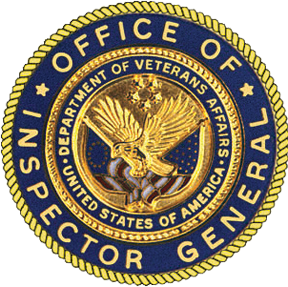Better Communication and Oversight Could Improve How the Pain Management, Opioid Safety, and Prescription Drug Monitoring Program Manages Funds
Report Information
Summary
Congress enacted the Comprehensive Addiction and Recovery Act (CARA) of 2016 to improve opioid therapy and pain management for veterans. Within CARA, the Jason Simcakoski Memorial and Promise Act (Jason’s Law) requires each Veterans Health Administration (VHA) medical facility to have a pain management team (PMT) to coordinate and oversee pain management therapy. The Pain Management, Opioid Safety, and Prescription Drug Monitoring Program (PMOP) was established in part to ensure the requirements of CARA and Jason’s Law are met.
In fiscal years (FY) 2022 through 2024, the PMOP received $647 million in specific purpose funds to support pain management and opioid safety programs primarily at the medical-facility level. However, the PMOP returned about $126.7 million unused in FYs 2022 and 2023. The VA Office of Inspector General (OIG) conducted this audit to evaluate the PMOP’s management of specific purpose funds.
The OIG found the PMOP did not always effectively communicate with VISNs and medical centers so that they could plan for efficient use of funds. In addition, the program did not always communicate important funding information with key officials before allocating funding. Finally, VHA and the PMOP need to strengthen oversight to ensure fully compliant PMTs are in place at each VHA facility.
The OIG made five recommendations to the under secretary for health. The OIG agreed to close two; VHA has already taken sufficient action related to instructing the PMOP to communicate pertinent funding information with key staff before the start of the next fiscal year. VHA also agreed to ensure the program clarifies and defines PMT requirements and establishes a way to periodically validate PMT information and to require the program and the chief operating officer to address each medical facility’s lack of progress in achieving a PMT.
Instruct the program to communicate pertinent annual funding guidance related to Pain Management, Opioid Safety, and Prescription Drug Monitoring Program initiatives before the start of the upcoming fiscal years so that Veterans Integrated Service Networks and medical facilities can adequately plan and take appropriate hiring actions needed to spend their funds.
Ensure the program communicates pertinent funding information related to Pain Management, Opioid Safety, and Prescription Drug Monitoring Program initiatives with key personnel—such as program coordinators and Veterans Integrated Service Network and medical facility leaders.
Ensure the program clarifies and defines requirements for pain management teams in the new Veterans Health Administration Directive 1151, Pain Management and Opioid Safety.
Establish means to periodically validate the status information of facilities’ pain management teams.
Require the program and the chief operating officer to assess and ensure corrective actions are taken to address each medical facility’s lack of progress in achieving compliance with the requirement to have a pain management team as mandated by the Jason Simcakoski Memorial and Promise Act.
